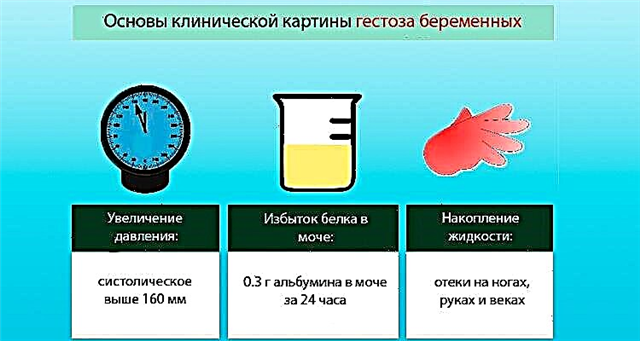What is Kapoten and why should it be taken?
Kapoten is used to treat diseases such as:
- Arterial hypertension (essential and secondary)
- Chronic heart failure (CHF)
- Lesions of the glomerular apparatus of the kidneys in diabetes (nephropathy)
- Postponed myocardial infarction
One Capoten tablet contains 25 or 50 mg of Captopril, the active ingredient. In the ACE Inhibitor group, Capoten's analogs exist in large quantities, produced by different manufacturers. The drugs differ slightly in chemical formula, for example - Berlipril, Likhinopril, Enap, Akcupro, Kvinafar. If you wish, you can choose the cheapest and most affordable substitute, since they will be equally effective.
How does the hood release pressure?
Capoten inhibits the activity of ACE, which at the same time cannot convert angiotensin-I into angiotensin-II, a substance with a strong vasoconstrictor effect. Also, this drug suppresses the secretion of the homone of Aldosterone by the adrenal cortex, as a result of which excess sodium and water are excreted from the body. By acting on the vascular wall, the medication stimulates the production of nitric oxide, which acts like Nitroglycerin - it dilates the arteries. Blood pressure goes down by reducing peripheral vascular resistance. In addition, there is an increase in cardiac output and a decrease in pressure in the right atrium and pulmonary circulation.
With prolonged use of the drug, the thickness of the muscle wall and the volume of the left ventricular cavity decreases, and the development of heart failure is also prevented.
By acting on the kidneys, Kapoten slows down the development of diabetic nephropathy.
In what doses should the drug be taken and what are the features of its use?
Appointment of Kapoten is contraindicated in:
- Aortic stenosis
- Hyperkalemia
- Hypersensitivity to Captopril
- Stenosis of one or both renal arteries
The drug is not prescribed for children, since its effect on the child's body has not been sufficiently studied.
ACE inhibitors are strictly contraindicated in pregnancy, as they cause fetal growth retardation. Safe Nifedipine and Dopegit are used to treat high blood pressure and preeclampsia in pregnant patients.
The interaction of Kapoten and alcohol has an extremely negative effect on the body, since the latter can lead to the development of even greater hypertension. A combination with potassium-sparing diuretics has a similar effect.
Diuretics of other groups (thiazide, loop) in combination with Captopril sharply lower blood pressure, which can cause collapse.
The dosage, frequency and duration of treatment are selected by the attending physician individually, depending on the patient's concomitant pathology. Usually, the minimum effective dose is prescribed, which gives the best clinical effect, by titration - a gradual correction of treatment with an increase in the amount of the drug.
| Disease | Initial dose | Optimal dose | Maximum daily dose |
|---|---|---|---|
| Arterial hypertension | 12.5 mg 2-3 times a day | 50 mg 2-3 times a day | 150 mg |
| Heart failure | 6.25 mg once a day | 12.5 - 25 mg 3 times a day | 75 mg |
| Diabetic nephropathy | 25 mg 2-3 times a day | 30 mg 2-3 times a day | 100 mg |
The medicine is swallowed whole without chewing and washed down with water. It is advisable to take Kapoten at the same time. In emergency cases, the drug is absorbed to obtain a quick effect.
What are the side effects of taking kapoten?
| Heart and blood vessels | Short-term drop in pressure, rapid heartbeat, which is restored when the patient takes a horizontal position. This is a normal physiological response and does not require treatment. |
| Lungs and airways | Dry cough, coughing is the most common "symptom" of taking Captopril |
| Kidney | The appearance of signs of renal failure - protein, urea nitrogen and creatinine in the urine. |
| Allergic reactions | Urticaria, flushing of the face due to vasodilation, redness. Vascular edema of the face and extremities is rarely possible. |
| Digestion | Changes in taste, dry mouth, inflammation of the mucous membrane of the gums and cheeks. There are rare cases of inflammation of the pancreas and cholestatic jaundice. |
| central nervous system | Headache, drowsiness and insomnia, paresthesia (feeling of goose bumps running on the skin, tingling in different parts of the body). |
| Electrolyte disturbances | Hyperkalemia (with concomitant renal failure), hyponatremia (if the patient adheres to a salt-free diet). |
In case of an overdose, there is a pronounced decrease in pressure, shock, electrolyte imbalance and acute renal failure.
Conclusions
Instructions for use Capoten should always be with you if you are taking this medication.
It is a very popular and widespread antihypertensive agent that has a cumulative effect, improving blood flow in the kidneys, as well as restoring the structure of the cavity and wall of the left ventricle.



